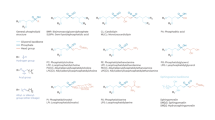Abstract
Background/objectives
In the general population, there is a popular belief that a vegan diet may be associated with a lower exercise performance due to the lack of certain nutrients in vegan individuals. Thus, the purpose of the present study was to examine endurance and muscle strength differences between vegan and omnivore participants.
Subjects/methods
We studied 56 healthy young lean physically active women (age: 25.6 ± 4.1 years; body mass index: 22 ± 1.9 kg/m2). Participants were classified as vegan (n = 28) or omnivore (n = 28) based on their eating habits. All volunteers followed either a vegan or an omnivore diet for at least 2 years. Anthropometric measurements, body composition, estimated maximal oxygen consumption (VO2 max), a submaximal endurance test (70% of VO2 max), muscle strength (leg and chest press), and dietary factors were measured.
Results
Both groups were comparable for physical activity levels, body mass index, percent body fat, lean body mass, and muscle strength. However, vegans had a significantly higher estimated VO2 max (44.5 ± 5.2 vs. 41.6 ± 4.6 ml/kg/min; p = 0.03, respectively) and submaximal endurance time to exhaustion (12.2 ± 5.7 vs. 8.8 ± 3.0 min; p = 0.007, respectively) compared with omnivores.
Conclusions
The results suggest that a vegan diet does not seem to be detrimental to endurance and muscle strength in healthy young lean women. In fact, our study showed that submaximal endurance might be better in vegans compared with omnivores. Therefore, these findings contradict the popular belief of the general population.
This is a preview of subscription content, access via your institution
Access options
Subscribe to this journal
Receive 12 print issues and online access
$259.00 per year
only $21.58 per issue
Buy this article
- Purchase on Springer Link
- Instant access to full article PDF
Prices may be subject to local taxes which are calculated during checkout
Similar content being viewed by others
References
Orlich MJ, Singh PN, Sabate J, Jaceldo-Siegl K, Fan J, Knutsen S, et al. Vegetarian dietary patterns and mortality in Adventist Health Study 2. JAMA Intern Med. 2013;173:1230–8.
Kim H, Caulfield LE, Garcia-Larsen V, Steffen LM, Coresh J, Rebholz CM. Plant-based diets are associated with a lower risk of incident cardiovascular disease, cardiovascular disease mortality, and all-cause mortality in a general population of middle-aged adults. J Am Heart Assoc. 2019;8:e012865.
Qian F, Liu G, Hu FB, Bhupathiraju SN, Sun Q. Association between plant-based dietary patterns and risk of type 2 diabetes: a systematic review and meta-analysis. JAMA Intern Med. 2019;179:1335–44.
Pimentel D, Pimentel M. Sustainability of meat-based and plant-based diets and the environment. Am J Clin Nutr. 2003;78:660S–3S.
Masset G, Vieux F, Verger EO, Soler LG, Touazi D, Darmon N. Reducing energy intake and energy density for a sustainable diet: a study based on self-selected diets in French adults. Am J Clin Nutr. 2014;99:1460–9.
Fields H, Ruddy B, Wallace MR, Shah A, Millstine D, Marks L. How to monitor and advise vegans to ensure adequate nutrient intake. J Am Osteopath Assoc. 2016;116:96–9.
Solis MY, Artioli GG, Otaduy MCG, Leite CDC, Arruda W, Veiga RR, et al. Effect of age, diet, and tissue type on PCr response to creatine supplementation. J Appl Physiol. 1985;2017:407–14.
Hanne N, Dlin R, Rotstein A. Physical fitness, anthropometric and metabolic parameters in vegetarian athletes. J Sports Med Phys Fit. 1986;26:180–5.
Nieman DC, Sherman KM, Arabatzis K, Underwood BC, Barbosa JC, Johnson M, et al. Hematological, anthropometric, and metabolic comparisons between vegetarian and nonvegetarian elderly women. Int J Sports Med. 1989;10:243–51.
Lynch HM, Wharton CM, Johnston CS. Cardiorespiratory fitness and peak torque differences between vegetarian and omnivore endurance athletes: a cross-sectional study. Nutrients. 2016;8:E726.
Nebl J, Haufe S, Eigendorf J, Wasserfurth P, Tegtbur U, Hahn A. Exercise capacity of vegan, lacto-ovo-vegetarian and omnivorous recreational runners. J Int Soc Sports Nutr. 2019;16:23.
Janssen M, Busch C, Rodiger M, Hamm U. Motives of consumers following a vegan diet and their attitudes towards animal agriculture. Appetite. 2016;105:643–51.
Melina V, Craig W, Levin S. Position of the academy of nutrition and dietetics: vegetarian diets. J Acad Nutr Diet. 2016;116:1970–80.
Alles B, Baudry J, Mejean C, Touvier M, Peneau S, Hercberg S, et al. Comparison of sociodemographic and nutritional characteristics between self-reported vegetarians, vegans, and meat-eaters from the nutrinet-sante study. Nutrients. 2017;9:E1023.
Thompson PD, Arena R, Riebe D, Pescatello LS, American College of Sports Medicine ACSM’s new preparticipation health screening recommendations from ACSM’s guidelines for exercise testing and prescription, ninth edition. Curr Sports Med Rep. 2013;12:215–7.
Lounana J, Campion F, Noakes TD, Medelli J. Relationship between %HRmax, %HR reserve, %VO2max, and %VO2 reserve in elite cyclists. Med Sci Sports Exerc. 2007;39:350–7.
Jacobs KA, Sherman WM. The efficacy of carbohydrate supplementation and chronic high- carbohydrate diets for improving endurance performance. Int J Sport Nutr. 1999;9:92–115.
Hearris MA, Hammond KM, Fell JM, Morton JP. Regulation of muscle glycogen metabolism during exercise: implications for endurance performance and training adaptations. Nutrients. 2018;10:E298.
Barnard ND, Goldman DM, Loomis JF, Kahleova H, Levin SM, Neabore S, et al. Plant-based diets for cardiovascular safety and performance in endurance sports. Nutrients. 2019;11:E130.
Acknowledgements
We would like to thank Joanie Lagarde, Lara Deslauriers, Cindy Medina-Ventura, and Camryn Mullin for their technical assistance as well as the participants who accepted to be a part of this study.
Funding
This work was supported by start-up funds from the Université du Québec à Montréal. The funder had no role in study design, data collection and analysis, decision to publish, or preparation of the paper.
Author information
Authors and Affiliations
Contributions
ADK and GHB designed the research; MALD and MG conducted the research; MALD, MG, and GHB analyzed the data; GHB and ADK wrote the first draft of the paper; GHB, ADK, MG, and MALD contributed to the writing of the paper; ADK had primary responsibility for the design, writing, and final content. All authors read and approved the final paper.
Corresponding author
Ethics declarations
Conflict of interest
The authors declare that they have no conflict of interest.
Additional information
Publisher’s note Springer Nature remains neutral with regard to jurisdictional claims in published maps and institutional affiliations.
Rights and permissions
About this article
Cite this article
Boutros, G.H., Landry-Duval, MA., Garzon, M. et al. Is a vegan diet detrimental to endurance and muscle strength?. Eur J Clin Nutr 74, 1550–1555 (2020). https://doi.org/10.1038/s41430-020-0639-y
Received:
Revised:
Accepted:
Published:
Issue Date:
DOI: https://doi.org/10.1038/s41430-020-0639-y
This article is cited by
-
Plant-based diets and sports performance: a clinical review
Sport Sciences for Health (2023)
-
SWAP-MEAT Athlete (study with appetizing plant-food, meat eating alternatives trial) – investigating the impact of three different diets on recreational athletic performance: a randomized crossover trial
Nutrition Journal (2022)
-
Benefits of a plant-based diet and considerations for the athlete
European Journal of Applied Physiology (2022)



